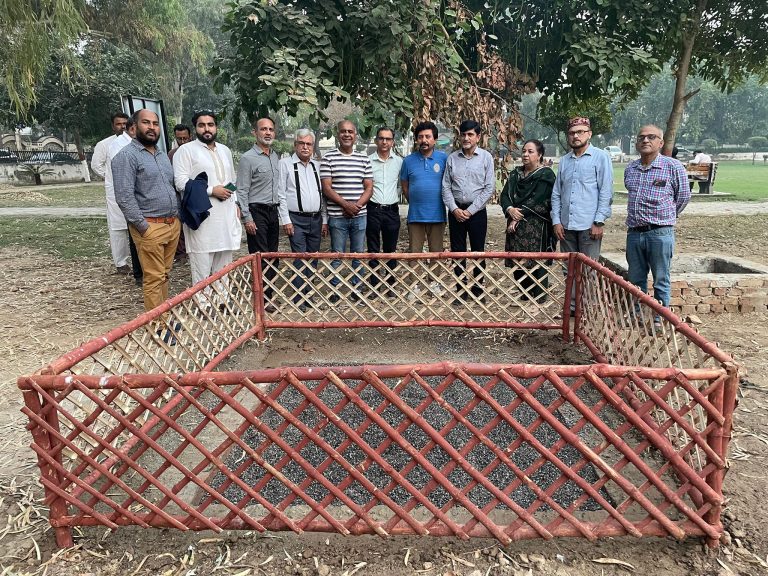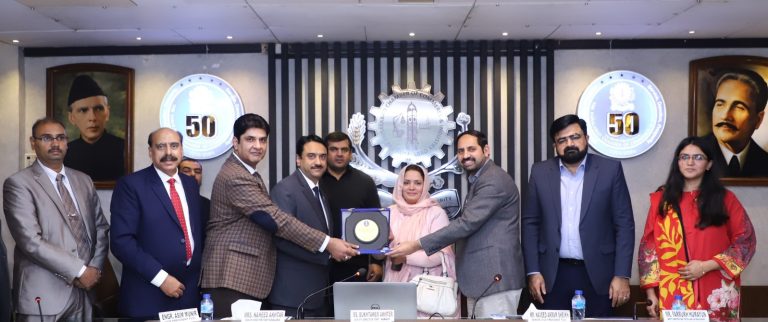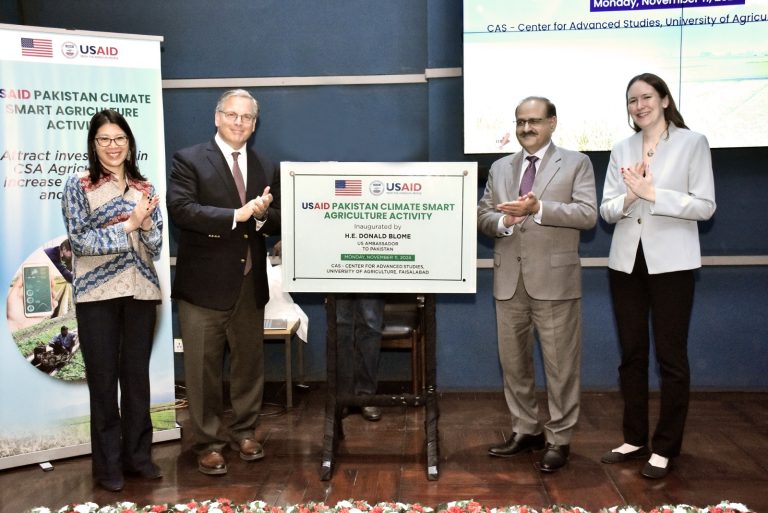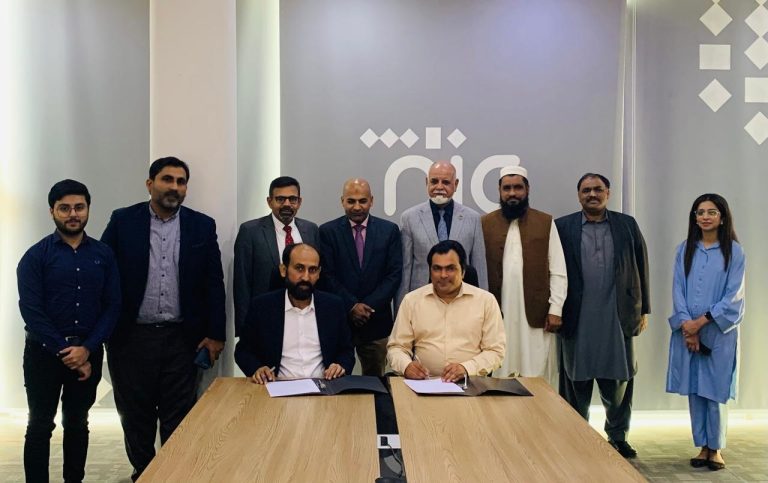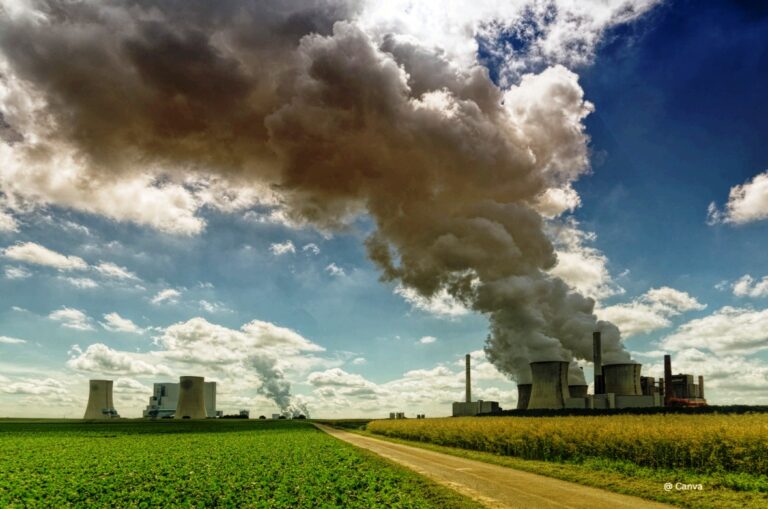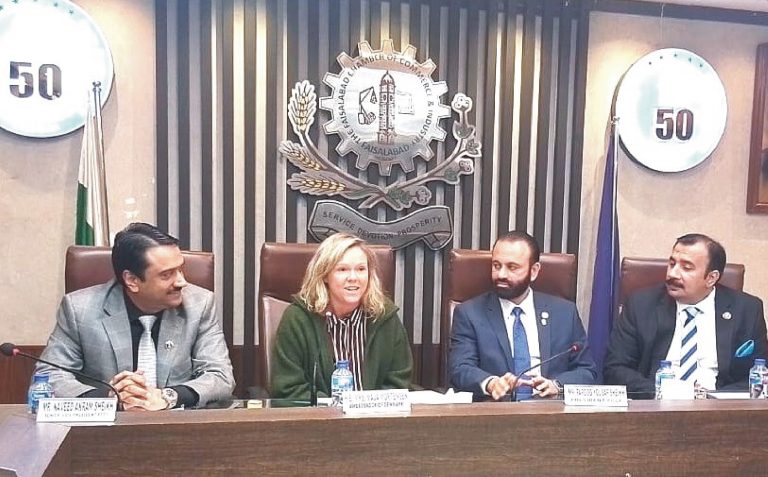Pakistan Unveils Carbon Market Policy to Strengthen Climate Commitments
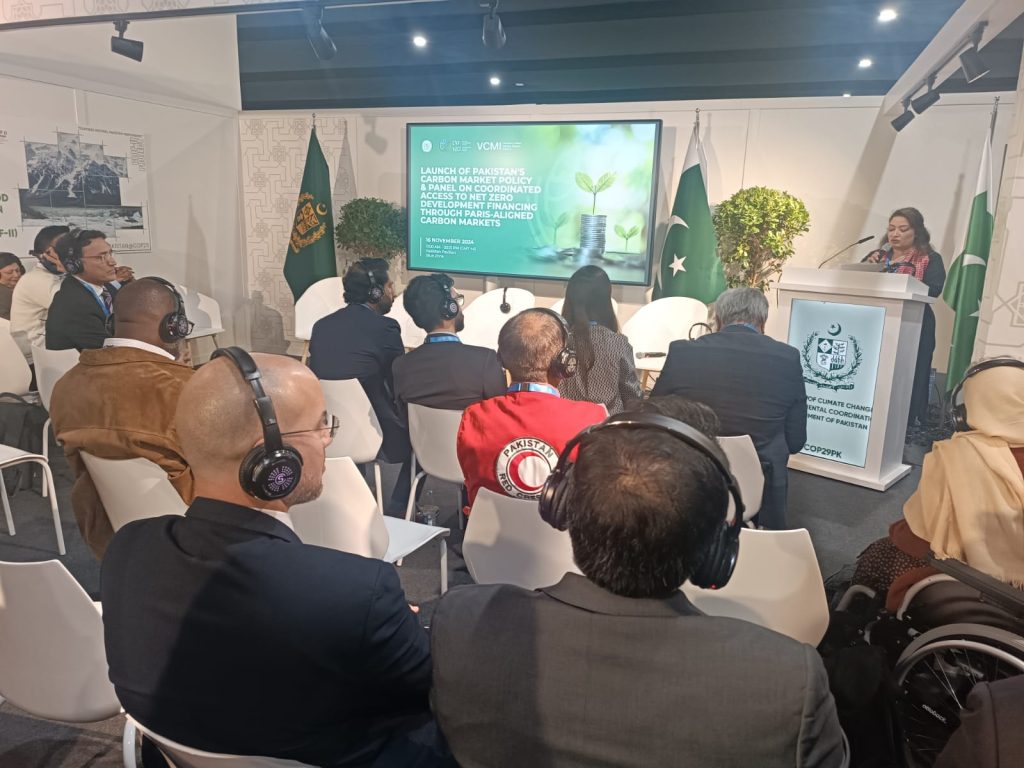
BAKU: The Ministry of Climate Change and Environmental Coordination (MoCC&EC) marked November 16 as Pakistan Pavilion’s “Carbon Market Day” at COP28, unveiling the country’s landmark Carbon Market Policy. The high-level event, titled “Pakistan’s Carbon Market Policy and Coordinated Capacity Building for Paris-Aligned Carbon Markets,” brought together policymakers, climate experts, and project developers to discuss the policy’s implications and forge a roadmap for integrating Pakistan into global carbon markets.
The new policy aims to establish a transparent regulatory framework for both voluntary and compliance carbon market activities in line with international standards. Speaking at the event, Ms. Aisha Moriani, Secretary of MoCC&EC, highlighted the significance of the initiative in accelerating clean technology adoption and attracting investment in critical sectors such as energy, agriculture, waste management, and forestry. She emphasized that the policy reflects Pakistan’s commitment to its climate and development objectives while aligning with the Paris Agreement.
Ms. Moriani acknowledged the support of international partners, including USAID, the World Bank, the German government, UNEP, and the Global Green Growth Institute (GGGI), in developing carbon market regulations and building sectoral capacity. She noted that the guidelines ensure the environmental integrity of carbon credit projects while fostering substantial economic and social benefits. By operationalizing the policy, Pakistan seeks to attract domestic and international investments in low-emission projects, advance its Nationally Determined Contributions (NDCs), and contribute to global climate change mitigation.
The Carbon Market Policy is built on three core pillars: ensuring robust environmental compliance, mobilizing investments for economic development, and promoting equitable benefit-sharing through social safeguards. It provides a legal framework and clarity to both national and international stakeholders, facilitating the issuance and trading of carbon credits.
The event, supported by the SPAR6C program under the German Federal Ministry for Economic Affairs and Climate Action, featured expert panel discussions on opportunities and challenges in Pakistan’s emerging carbon market. Speakers included Fenella Aouane, Director of Carbon Pricing at GGGI, who described the policy as a significant step toward Pakistan’s participation in global carbon trading. Other experts shared lessons from their countries, offering insights into fostering transparency and maximizing the benefits of carbon market regulations.
Romina Khurshid Alam, Coordinator to the Prime Minister on Climate Change and Environment Coordination, underscored the critical role of Article 6 of the Paris Agreement in enabling emissions reductions and sustainable development. She emphasized the importance of cross-border collaboration and transparency in carbon markets to ensure the equitable distribution of resources and benefits.
The policy also includes the establishment of a one-window facility to streamline transactions and communications, providing a unified framework for project developers and buyer countries. Sectoral priorities and strategies, currently under development as part of Pakistan’s NDC update, are expected to identify further opportunities for collaboration and investment.
The unveiling of the Carbon Market Policy represents a milestone in Pakistan’s climate strategy, signaling its readiness to engage in international carbon markets. The initiative seeks to enhance resilience, foster sustainable development, and position Pakistan as a key player in global efforts to combat climate change.

